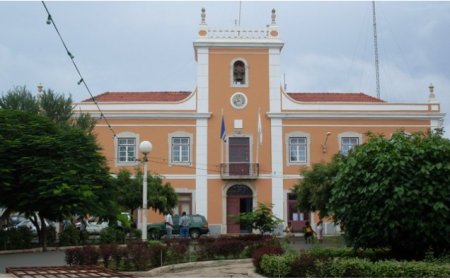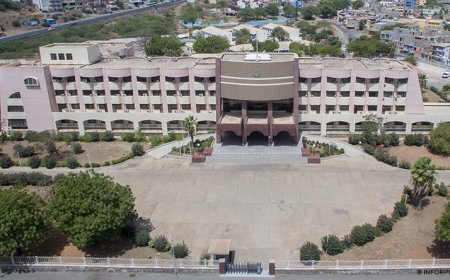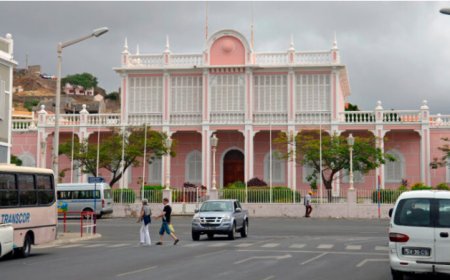Praia: "Cape Verde is on the verge of populist attacks" by Adilson Valadares launched today
The title of the book by jurist Adilson Valadares, "National Populism, A Threat to the Liberal and Democratic Constitution of 1992", to be presented today, Friday 24th, at 6pm, sums up the author's intentions: to identify and present the characteristics of what he calls "National Populism", the way in which it can obliterate rights, freedoms and guarantees, and the means available in Cape Verde's Constitution to combat it. The work will have three volumes.

Adilson Valadares has no doubts: "In Cape Verde we are already on the verge of more and more populist attacks and with the possibility of them coming to power."
As the author explains, a native of São Nicolau, a jurist known for participating in radio and television commentary programs, the book is the result of his master's thesis, defended this year, which goes further at a time when populism is being talked about in various parts of the world, including Cape Verde:
"At the moment, the PAICV itself, in my opinion, and I say this upfront, is on the verge of a populist attack internally and with major consequences, in what is one of the most important parties in Cape Verde." But this is, as he says, a matter that will be analyzed in the second volume, which should be out in two months" time, with a third to come out next year.
In this first volume, to be presented this Thursday, the 22nd, at the National Library, "I highlight populism, its concept, its history, its origins, as well as the means of defense provided for in our 1992 Constitution, to combat it."
In addition, the jurist identifies where the greatest risks may lie: "It's the attacks on institutions, the courts, the separation of powers..." But for Adilson Tavares, Cape Verdeans are already familiar with populism and its manifestations in another form and context.
"In the two volumes coming out this year I show how Cape Verde is not only not immune to populism, quite the contrary, this phenomenon has had a historical impact on the country, since independence, but comparisons have to be made: In the first phase we were faced with a party that fought for independence; populism implies that there is a people on one side, who are the owners of morality, and a corrupt elite on the other; so right after independence it was the people who were with the party, and the corrupt counter-revolutionary elite were all those who didn't share Cabral's ideas, which was justified by the question of national independence."
Populism is in Cape Verde's history
Among the various origins of populism is popular weariness with representative democracy, as highlighted by Adilson Valadares. And here too, Cape Verde is not left out, as the data shows, when it comes to these popular phobias, and in this first volume, the author gives an example of skepticism towards the institutions in a well-known case.
In this first volume, the author gives an example of skepticism towards the institutions.
"In this first book, I highlight an issue involving the national courts, a populist who is a friend of mine, but scientifically I knew how to distinguish between things; it's one thing to be offensive towards a judge who would have been disloyal to a particular case, it's another thing to call all judges corrupt, and that the other party is the owner of morality, etc."
The jurist presents himself as a "defender of democratic institutions", and when he talks about political criminal law, he presents it as "support for the defense of democratic values", which is why he draws attention to another aspect of the new times: "Institutions are riding the wave of social networks, where it is proposed that increasing the penal framework will reduce crime, when the very dogma of criminal law contradicts this fact."
And, in addition to all the risks that Cape Verde's political system runs in the face of a populist leader, the author lists a few in the book: "Increasing the number of mandates, in the case of a President of the Republic, wanting to revise our rights, freedoms and guarantees, wanting to change the separation of powers, implementing semi-presidentialism to the detriment of mitigated parliamentarism, just to name a few."
"In Cape Verde," he warns, "because we have bipartisanship and there is no capacity for new parties to emerge, there is a tendency for populist candidates to appear within the traditional parties, with populist proposals."
The book will be presented by jurist Geraldo Almeida this Friday, the 24th, at 6pm at the National Library. The second volume is due out in two months' time and the third, according to the author, is expected to be released at the beginning of 2026, before the parliamentary elections.
Joaquim Arena




















































